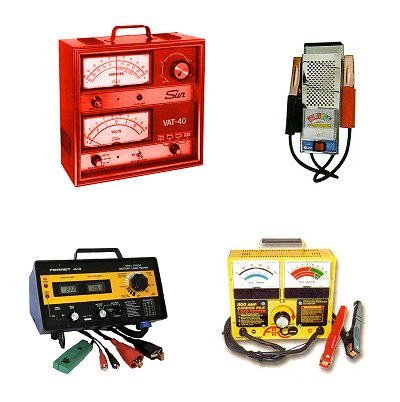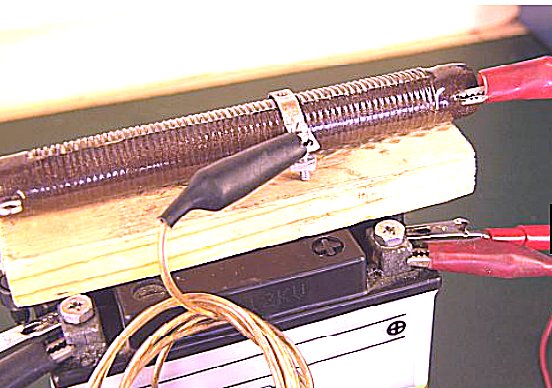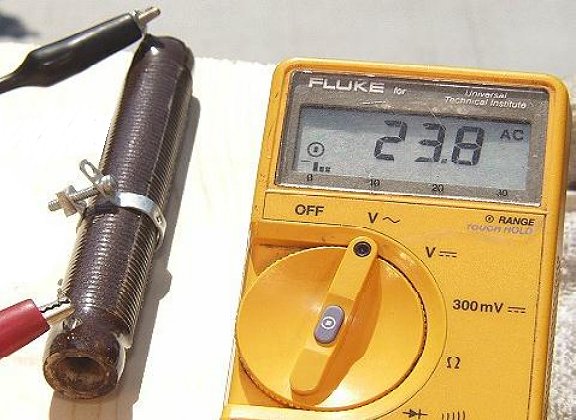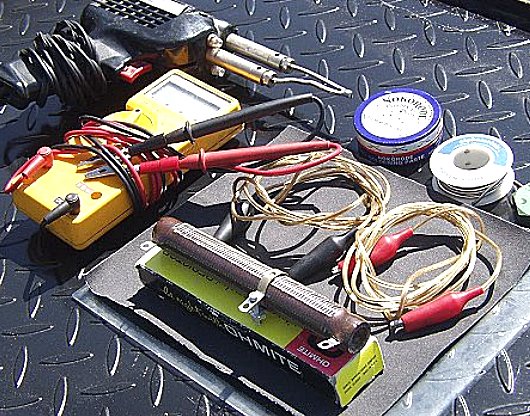  ® ®
|
The benefits of the load tester |
|
|
Everybody wants troubleshooting to go as smoothly as possible. Electrical troubleshooting is probably the most difficult for most folks. Professional mechanics of course look at things a little bit differently, because we're not shooting in the dark as most people are. But we still want to not waste time with questionable test results. And there is where all of us want the same thing. To that objective, this tool is probably the single most important one you can have. Used by ham radio operators to test their gear, this known electrical load puts stress on electrical components so that they show their true state. |

|
Batteries can be load tested, and alternator stators also, just like the way more expensive load testers this tool replaces. Find this load resistor at Allied Electronics, part number 70022650, $31 retail as of this writing. Compare that with hundreds of $ for most of the the traditional load testers shown here.
|

|
Here the tool is being used to load test a battery. Note that the center lug is being used, making the tool's resistance suitable for battery loading. Not shown is the multimeter which is tracking the battery's voltage drop, though the meter's leads are visible at the edges of the photo. (Note: the resistor is laying on a piece of wood because it gets hot!)
|

|
Here it is being used to load test a stator. The center lug is not being used here. The multimeter is indicating loaded AC voltage at the alternator stator at 5,000 rpm. (Note: the resistor is laying on a piece of wood again.)
|

|
I used to tell my students, "Don't ever base a part purchase decision on a resistance test." Of all the tools used in electrical troubleshooting and repair, the load test resistor's utility in providing dynamic, real-world test results surpasses that of the multimeter itself. It's that important.
|
|
Last updated January 2026 Email me www.motorcycleproject.com My bio © 1996-2026 Mike Nixon |
